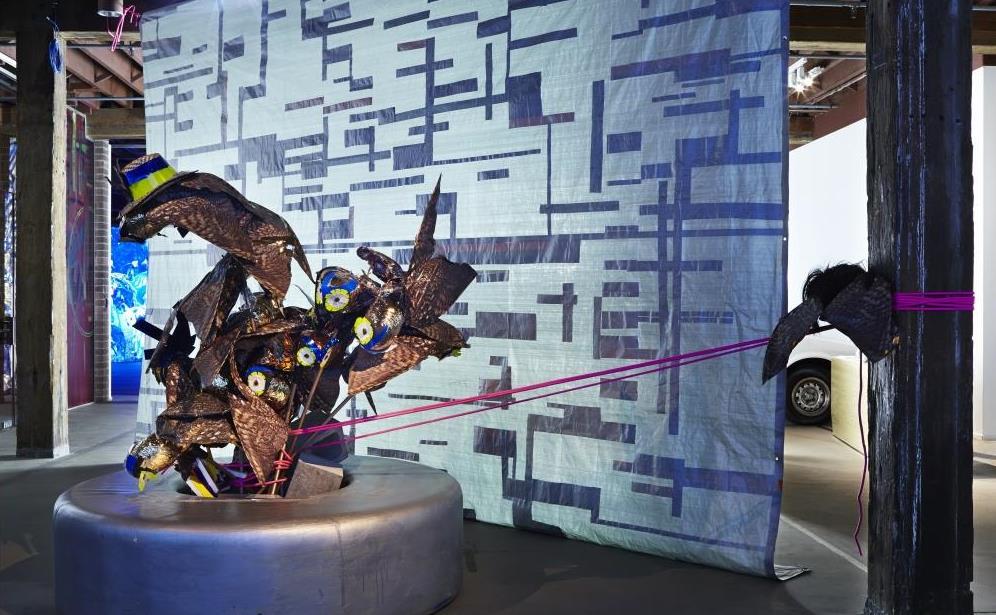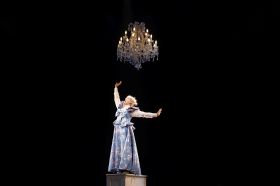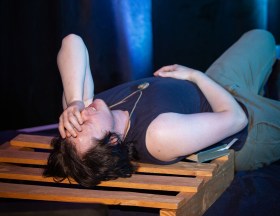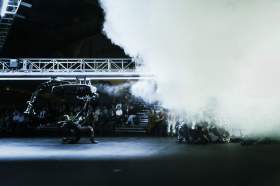Image: Justene Williams, The Curtain Breathed Deeply 2014. Griffith University.
Known for her large-scale installations, sculptures, performance-based practice, and video and photography work, Australian artist Justene Williams understands how important it is to have the skills to create and build things by hand.
‘We’re always with devices and live in a time where we just touch and tap and it’s all there for you – access to information and ideas are all there … But material knowledge, learning how to make things with your hands, is an extraordinary thing to do these days, and a really important skill to have,’ she said.
The breadth of Williams’ experience means she is perfectly placed (creatively speaking) to teach the next generation of artists graduating from Queensland College of Art, Griffith University (QCA), where the freedom to choose electives gives students space to expand their practice and experiment.
‘My practice is a very broad one and includes sculpture, performance, installation, photography, painting, the entire gamut of work. From that I understand that if you have a particular idea, you can see that idea realised in any medium or any way that you can imagine. As a teacher, I try to support that,’ said Williams.
The free-choice electives at QCA are a way students are encouraged to branch out and follow their interests. These electives contribute towards the student’s degree but can be selected from outside of their program area. For example, a student studying the Bachelor of Fine Art with a major in sculpture can choose an elective on Wearable Technology or Photography, if that aligns with their career interests.
‘The idea is that you can be anchored in one dedicated studio area and then the free-choice electives allows you to cross over in other fields or other ways of working if you want to expand your practice,’ Williams explained.
Less hot-desking, more studio space
Another thing that sets QCA apart is access to dedicated studio space, Williams said. ‘What we have in QCA that is really extraordinary, and which I think is dwindling across Australia, is studio-based teaching.
‘It is really important to have studio-based teaching because it gives students the room to create work and they get to make their work in a studio-based environment with their peers.
‘You can sit, you have time, you have a wall, you have a space, you can make,’ she added.
Once the structured lesson is over, a dedicated studio space for students means they can come back and keep working at almost any time. It’s an environment that Williams feels creates independence in her students and prepares them for professional working life after they graduate.
‘Once you leave the safe confines of university, you really need to be very resourceful and independent to be able to make work on your own. It’s not easy. Once you leave it’s just you and the white wall or you and the space. So we create these particular ways of making where you can work independently,’ she said.
‘Students start developing independence and they can start working on their practice individually.’
Learn more about Queensland College of Art, Griffith University.






